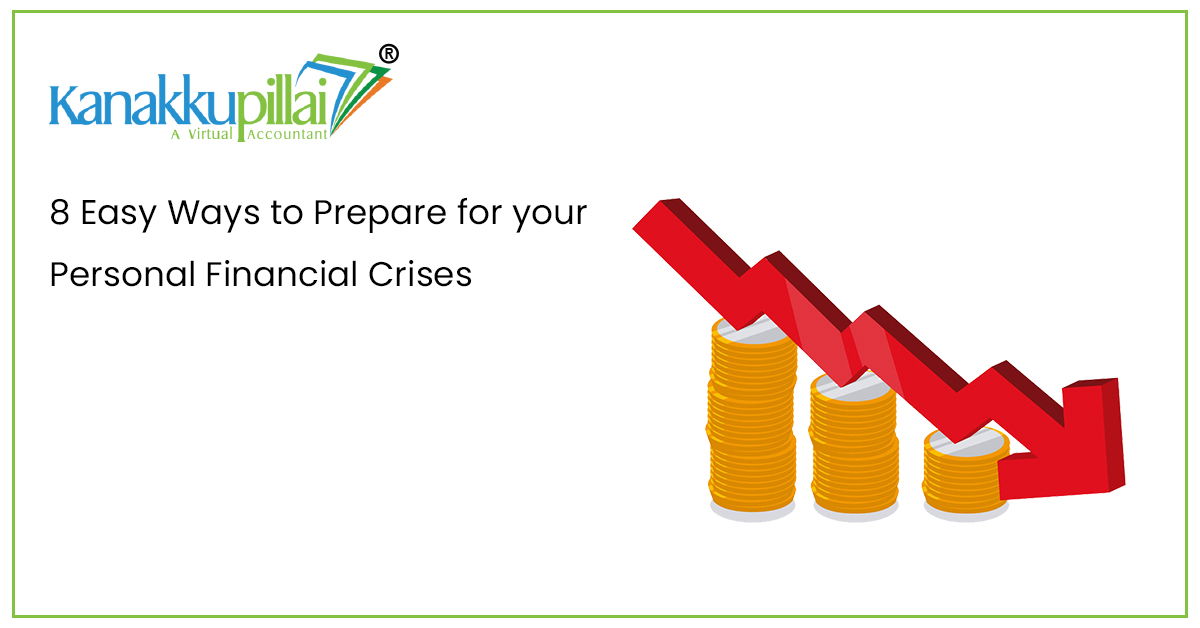Last Updated on January 12, 2026
A personal financial crisis can strike unexpectedly. Even a stable financial life can be ruined in a short period of time due to job loss, medical emergencies, unexpected family issues, or an economic crisis. Planning ahead is not anticipating the worst but rather building resilience in case the unexpected happens and does not totally ruin your future. Through careful choices and regular routines, anyone can improve their financial situation. The eight tips you can apply in practice will help you be ready to handle a personal financial crisis and embrace uncertainty with resilience.
1. Understand Your Financial Position
Clarity is the initial stage to preparedness. You are to be aware of your financial status. This involves knowing where you will get your income, what you will spend every month, what debts you have, and your savings. Most individuals do not review their finances on a regular basis, and this causes blind spots that are only realised in times of crisis. When you follow the money with an open mind, you will be in command of your money rather than responding emotionally. Having a clear picture will enable you to know weak areas and then take corrective action even before any financial trouble sets in.
2. Establish an Effective Emergency Fund
An emergency fund is a buffer fund in challenging periods. It can save you the trouble of using loans or credit cards when you face unplanned expenses. Preferably, this amount should cover at least 3 or 6 months of basic needs, including rent, food, utilities, and medical costs. What matters is fidelity, not quantity. Even small and frequent contributions can become a stable cushion in the long run. Having this fund apart from your usual savings will also not help you to spend any money as and when you need it.
3. Manage Empty Pocket and Escape Lifestyle Inflation
Expenses tend to rise with income. This is actually called lifestyle inflation, and it will leave you vulnerable in a crisis. Budgeting in case of financial uncertainty involves being a spender. Concentrate on the differentiation between needs and wants. Periodic assessment of costs will help remove unnecessary costs and shift funds to savings and security. It does not imply that you have to live below your means to be happy. It is making conscious decisions that contribute to long-term stability, not short-term comfort.
4. Reduce Debt and Manage Credit Wisely
Debt has the ability to increase the effects of a financial crisis. Unnecessary borrowing, credit card debt, and high-interest loans may easily get out of hand when income is disrupted. The process of preparing for a crisis is to reduce debt responsibly. The priority should be to pay off debts with high interest rates, since this frees up future cash flows. Meanwhile, it is significant to have a good credit history. Good credit will give one access to cheap financial facilities in case there is a need when it comes to emergencies.
5. Diversify Income Sources
Depending on a single source of income creates financial risk. Among the most appropriate methods for preparing for a financial crisis, it is important to diversify your income sources. This may involve freelance employment, consulting, part-time work or passive income. A small secondary income can stabilise even in uncertain times. Diversification not only enhances financial stability since it fosters confidence, in the sense that it eliminates overreliance on a single employer or sector.
6. Long-term Investment should be a Balanced Strategy
It is not only about making a lot of money, but ensuring your future. An investment plan that is properly designed takes into account the risk tolerance, time and financial objectives. When there is a crisis in place, emotionally driven decisions tend to lead to losses. Anticipation through diversification of investments in asset classes is good at controlling risk. Disciplined long-term investing guarantees that short-term market fluctuations will not ruin years of hard-earned financial gains. Rebalancing and reviewing your financial base regularly also helps to improve your financial foundation.
7. Defend Yourself through adequate Insurance
Insurance is crucial for financial preparedness. The savings can be quickly depleted by health problems, disasters, or sudden misfortunes as long as they are not insured. Sufficient health, life and asset insurance will shift the financial risk off your own pockets. Periodic review of your insurance coverage will ensure it is always up to date with your current obligations and lifestyle. Insurance does not eliminate crises; it just reduces their financial impact and ensures long-term stability.
8. Get a Financial Mentality and Emergency Plan
Preparation is not financial, but it is mental. A financial mind is strong and requires discipline, patience, and flexibility. Creating an emergency plan is a way to respond calmly in a crisis. This plan can involve the prioritization of important costs, the liquidity identification, and the understanding of where to resort to professional help. Once you have mentally prepared yourself, it is not possible to make decisions in panic, which tends to aggravate financial issues. When it is known and planned, uncertainty can be changed into challenges that can be handled.
Conclusion
Your future does not mean you are in a personal financial crisis. Financial resilience is based on preparation, awareness and consistency. Knowing your money, building an emergency fund, spending wisely, managing debt, diversifying income, investing, insuring, and maintaining the appropriate attitude give you a powerful shield against uncertainty. These simple yet effective measures do not entail abrupt changes or massive resources. They need dedication and vision. Getting ready now means that when a problem comes, you are in a state of stability and confidence to handle the challenges.
Our team here at Kanakkupillai will always be there to assist you with any financial needs.





